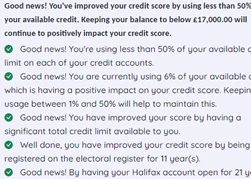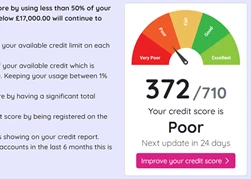Guarantor Loans and Your Credit Score: What You Should Know

27th May 2025
In the UK, guarantor loans have become a popular borrowing option for individuals who may struggle to get approved for credit due to a poor or limited credit history. While these loans offer a lifeline to many, it’s important to understand how they can affect your credit score—whether you’re the borrower or the guarantor.
What Are Guarantor Loans?
Guarantor loans are unsecured personal loans where a second person (the guarantor) agrees to repay the loan if the borrower fails to do so. These loans are often used by people with bad credit or no credit history who might otherwise struggle to get approved for traditional financing. The guarantor is typically a close friend or family member with a good credit score and stable income.
Impact on the Borrower’s Credit Score
For the borrower, a guarantor loan can be a positive step towards building or rebuilding credit. Making regular, on-time payments will be reported to credit reference agencies and can gradually improve your credit score. However, missed payments or defaults can have the opposite effect, damaging your score and making future borrowing more difficult.
Because guarantor loans often come with higher interest rates, it's crucial to budget carefully to ensure payments can be made consistently and on time.
Impact on the Guarantor’s Credit Score
Many people don’t realise that becoming a guarantor also has potential implications for their own credit profile. While the guarantor’s credit score won’t be affected as long as the borrower keeps up with repayments, any missed or late payments could result in the guarantor being held responsible for the debt.
If the guarantor has to step in and cover repayments, this will be recorded on their credit file. In extreme cases, if the loan goes into default and legal action is taken, it could significantly harm the guarantor's credit score as well.
Things to Consider Before Agreeing to a Guarantor Loan
Whether you're taking out a guarantor loan or agreeing to support someone else’s, think carefully before committing:
-
Can the borrower realistically afford the monthly repayments?
-
Are you (or your guarantor) financially stable enough to cover the loan if things go wrong?
-
Are both parties fully aware of the risks and responsibilities?
It’s also worth checking both the borrower’s and the guarantor’s credit reports before applying. You can do this for free through services such as CreditCheckOnline.co.uk.
Final Thoughts
Guarantor loans can be a useful way to access credit when other options aren’t available, and they can help improve your credit score when managed responsibly. However, they carry significant risks—especially for the guarantor—and should never be entered into lightly. Always consider the long-term financial impact before proceeding.
Don't risk missing
something important
Access a comprehensive credit report
that includes detailed data from TransUnion
View your credit score for only £1.95.
You can view it for 1 month, after which it will be £14.95 per month unless cancelled.
See How You Score

See How You Score
An Independent View Of Your Credit Score
Lenders typically use their own systems to calculate your Credit Score based on the information in your Credit Report, often checking with one or more Credit Reference Agencies. Your Credit Check Online Credit Score is derived from all the Credit Report information we gather from TransUnion, helping you understand how you might be assessed when applying for credit.

Understand What is Affecting Your Credit Score
Quickly see how the details in your Credit Report influence your Credit Check Online Credit Score, both positively and negatively. This clear overview helps you identify areas for improvement and better understand the factors that lenders consider when assessing your creditworthiness.
View your credit score for only £1.95.
You can view it for 1 month, after which it will be £14.95 per month unless cancelled.